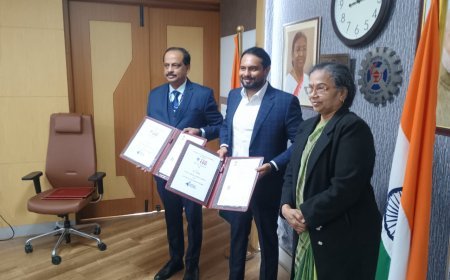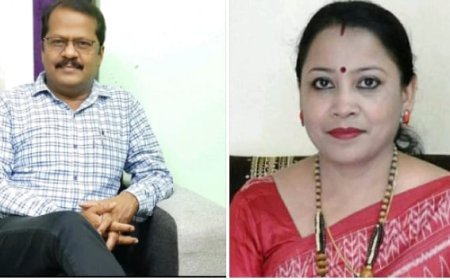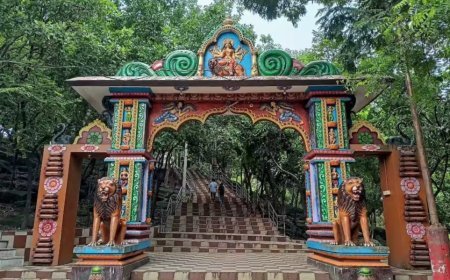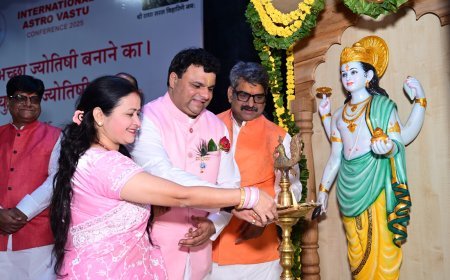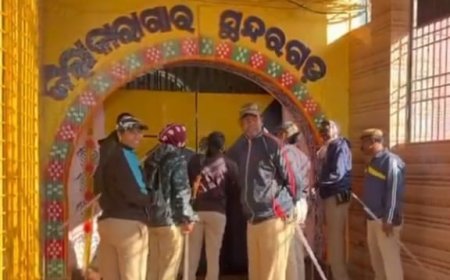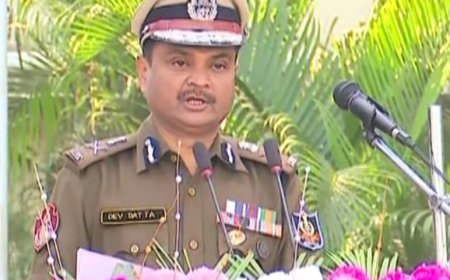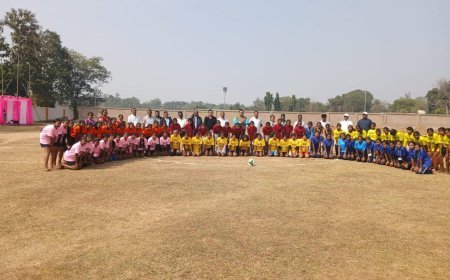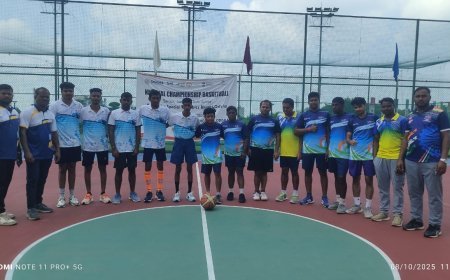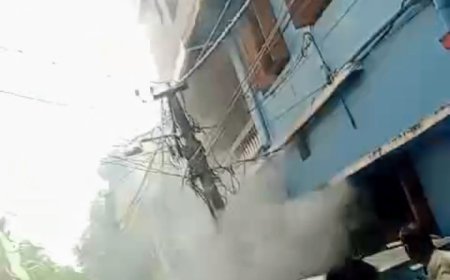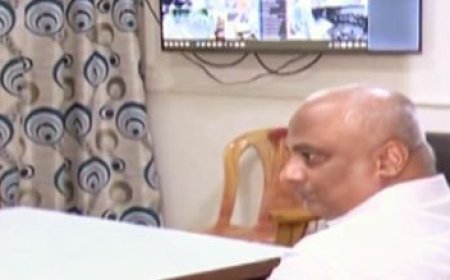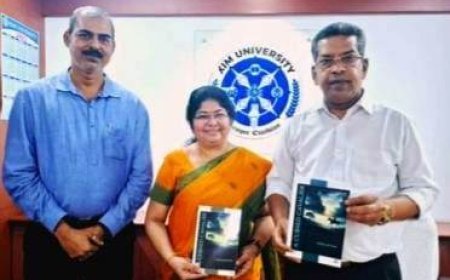Sundargarh at the Crossroads: Time to Act Beyond Complaints

By Sanjay Pattnayak
Sundargarh, a small town nestled in the heart of Odisha, is facing a silent crisis—not because of any one event, but due to a systemic collapse of civic responsibility and administrative inefficiency. While crores have been spent over the years in the name of development—especially after the launch of the Swachh Bharat Abhiyan in 2017—the town’s current state paints a grim picture. Dustbins once installed under the central cleanliness mission vanished within six months, as if swallowed by apathy. Ponds are now debris dumps, and open drains have become garbage pits.
A deeper look reveals a troubling trend:
administrative shortcomings matched by a lack of civic awareness among residents. As Sundargarh continues to grow, these issues threaten its sustainability, cleanliness, and future development. Here are ten core challenges facing the town—and ways forward.
1. *Education in Crisis: Shortage of Staff at Government College*
The Government College, Sundargarh, is reeling under a severe staff crunch. With over 1,500 students and only a handful of permanent faculty members, both teaching and administrative work suffer.
*Solution:* Immediate recruitment drives must be conducted by the state education department. Retired teachers can be hired on a temporary basis, and digital learning resources can be introduced in the interim.
2. *Understaffed Municipality*
An understaffed Sundargarh Municipality means delays in essential services like sanitation, water supply, and public grievance redressal.
*Solution:* The government should allocate dedicated human resources proportional to the growing population. Incentives can attract young administrative professionals to Tier-III towns like Sundargarh.
3. *Pending Building Plan Approvals*
A backlog in building plan approvals has brought construction activity to a standstill, affecting residents and businesses alike.
*Solution:* Digitization of the plan submission and approval process can bring transparency and efficiency. A weekly “Clearance Camp” can be instituted to expedite old applications.
4. *Hospital Road: A Half-Built Lifeline*
Hospital Road’s delayed construction has caused daily inconvenience and traffic bottlenecks, particularly near the main hospital.
*Solution:* Fix a project completion deadline and set up a real-time progress monitoring system involving both officials and citizen representatives.
5. *Bijuli Bandh Renovation in Limbo*
What began with promise in October 2020 is now an eyesore. The incomplete renovation of Bijuli Bandh impacts the town's ecology and aesthetics.
*Solution:* The Urban Development Department must investigate delays. Local youth clubs and NGOs can help maintain the site once completed, ensuring shared responsibility.
6. *Water Woes Worsen*
The Ib River, once Sundargarh’s lifeline, is drying up. Areas like Sankara, Mundapada, and Regent Market face acute water shortages.
*Data:* According to local reports, the groundwater table has dropped by 2.5 meters in the last three years.
*Solution:* Rainwater harvesting should be made mandatory in all buildings. A long-term water sourcing strategy—possibly tapping nearby reservoirs—must be developed.
7. *Coal Dust and Air Pollution*
Villages near Kulda Open Cast Project like Taparia and Ratanpur are choking under dust pollution from uncovered coal transportation.
*Solution:* Mandate covering of coal-carrying trucks and install roadside sprinklers. Pollution Control Boards must conduct frequent air quality audits and publish results publicly.
Visual Suggestion: (Insert a table showing PM10 levels in the last 6 months across affected areas.)
8. *Industrial Strikes and Job Losses*
Labour unrest continues to haunt industrial development. The prolonged closure and reopening hurdles of Ashoka Multiyarn Mills Ltd (now Shri Hari Spinners Pvt Ltd) exemplify the broader issue.
*Solution:* Create a tripartite dialogue forum between industry, labour unions, and the administration. Labour codes must be strictly implemented to avoid exploitation and unrest.
9. *Stalled Growth of Government Medical College*
Despite noble intentions, the new Government Medical College and Hospital needs urgent attention—particularly in infrastructure and staffing.
*Solution:* Conduct a ground audit in consultation with the Dean. Use district mineral fund (DMF) resources to fill critical gaps in infrastructure and manpower.
10. *Ring Road Project Awaiting Liftoff*
The long-awaited Ring Road project remains on paper, pending cabinet approval. With traffic congestion worsening, this project is non-negotiable.
*Solution:* Local MLAs and MPs must push for the project’s inclusion in the next cabinet agenda. Meanwhile, an interim traffic decongestion plan should be rolled out.
*Civic Sense is the Missing Link*
While it's easy to point fingers at the administration, residents must also introspect. Stealing public dustbins, dumping waste in drains, or burning plastic openly are all examples of a broken civic culture. It’s time we stop treating government property as “no one’s responsibility.”
Post-Covid garbage collection by outsourced agencies has improved things marginally, but that cannot replace community ownership. We must treat civic cleanliness and public infrastructure with the same respect we show our homes.
*Call to Action: Beyond Complaints, Towards Collaboration*
Sundargarh needs a Public Forum—not tied to any political agenda—where administrators, citizens, professionals, and youth can jointly monitor civic issues. This body should:
- Submit periodic reports to district officials.
- Organize civic awareness campaigns.
- Provide feedback on infrastructure projects.
-
*- Final thoughts*
Sundargarh stands at a crossroads. The way forward requires participation, not passivity; accountability, not accusations. As citizens, let’s ask not just what the town can do for us—but what we can do for our town.
If we fail to act now, the cost of inaction will be paid not just by us—but by generations to come.








